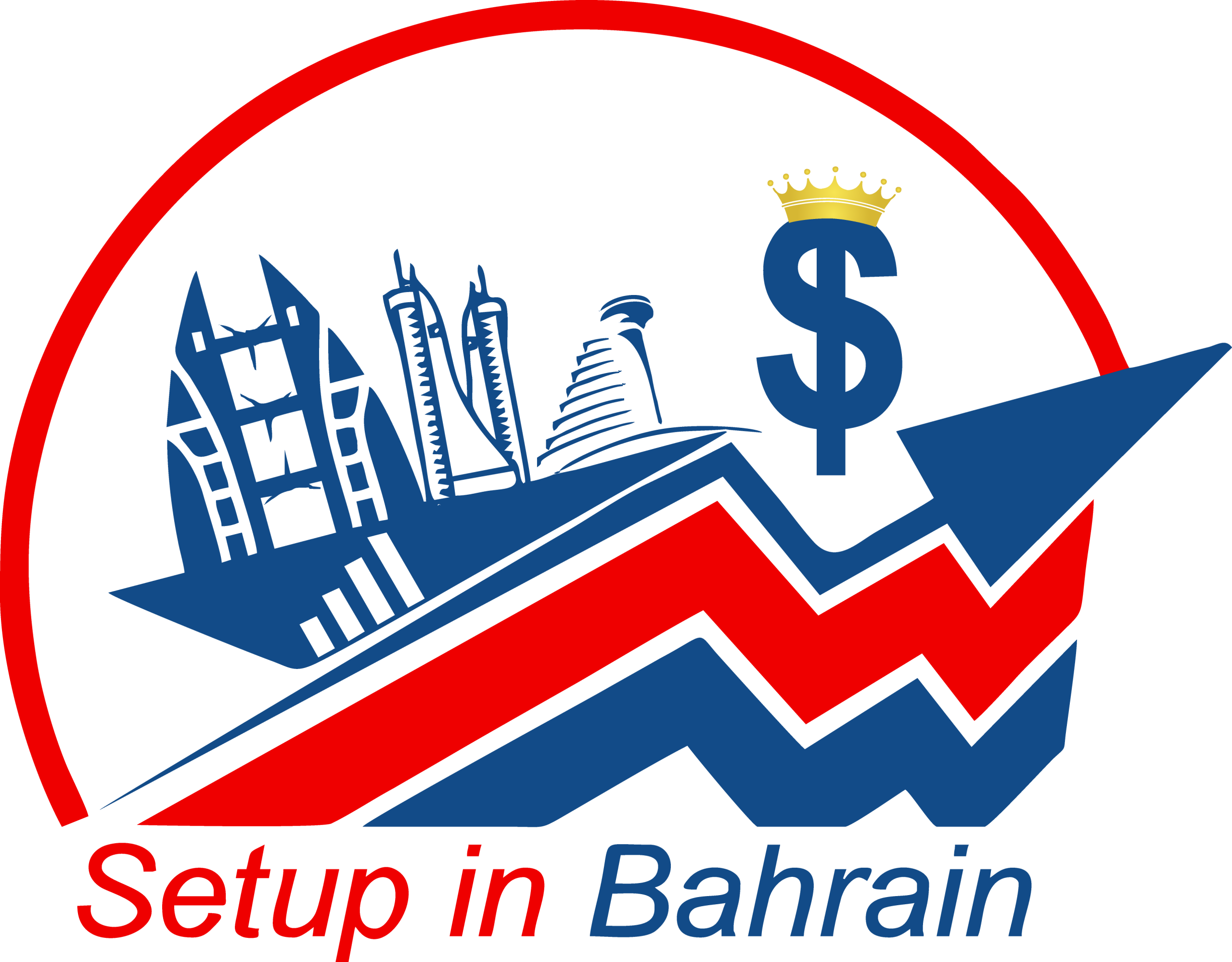In 2025, Bahrain continues to be an exciting hub for business, offering unlimited opportunities for startups, multinational corporations, and SMEs alike. A crucial step in setting up your business is opening a corporate bank account in Bahrain, an essential requirement for conducting smooth financial transactions. However, navigating this process can come with potential pitfalls. Identifying and avoiding red flags early can save you time, money, and future operational hassles.
In this guide, we delve into the top five warning signs to look out for when opening a corporate bank account in Bahrain, ensuring your financial foundation is secure and sustainable.
5 Red Flags to Watch for When Opening a Corporate Bank Account in Bahrain 2025

How to Evaluate a Bank’s Reputation in Bahrain
1. Unclear Fee Structures and Hidden Charges
Banking in Bahrain is known for its transparency, but not all institutions operate equally. Be wary of banks that fail to provide a clear breakdown of fees associated with account maintenance, international transactions, or additional services.
Red Flags to Look Out For:
Vague terms in the fee structure or difficulty accessing detailed documentation.
Hidden fees for services like currency conversion, inward remittances, or cheque processing.
Monthly maintenance fees that increase without prior notification.
How to Mitigate:
Always request a detailed fee schedule in writing.
Compare fee structures across multiple banks.
Opt for institutions with a transparent fee policy.
2. Lengthy and Complex Documentation Requirements
While Bahrain’s regulatory framework ensures financial security, excessively burdensome documentation requests could signal inefficiency or lack of expertise.
Red Flags to Look Out For:
Requests for irrelevant or repetitive documents.
Frequent follow-ups for already submitted paperwork.
Delayed responses or vague timelines for account approval.
How to Mitigate:
Work with banks familiar with corporate banking for foreign investors.
Prepare a comprehensive checklist of required documents beforehand, including:
Commercial registration (CR) copy.
Passport and residence visa of authorized signatories.
Proof of address and business activities.
3. Lack of Digital Banking Facilities
In today’s fast-paced business environment, digital banking capabilities are non-negotiable. Banks that lack modern tools and platforms could hinder your business’s efficiency.
Red Flags to Look Out For:
No provision for online account management or mobile banking apps.
Limited access to real-time transaction tracking and reporting.
Absence of advanced cybersecurity measures.
How to Mitigate:
Test the bank’s digital platforms during the evaluation phase.
Opt for banks offering seamless integration with accounting tools and software.
Prioritize banks with 24/7 online customer support.
4. Inflexible Account Options
A one-size-fits-all approach to corporate banking may not suit your business’s unique needs. Some banks might offer rigid account packages without customization options.
Red Flags to Look Out For:
Limited account types for varying business sizes or industries.
Lack of tailored solutions for startups, SMEs, or multinational entities.
No scalability options as your business grows.
How to Mitigate:
Choose banks with customizable account solutions.
Look for flexibility in deposit requirements, transaction limits, and associated services.
Ensure the bank aligns with your long-term financial goals.
5. Poor Customer Service and Support
Efficient customer service is vital for resolving issues promptly. Poor communication channels and unresponsive staff can cause unnecessary delays in critical financial operations.
Red Flags to Look Out For:
Long wait times for responses to queries.
Uninformed or untrained staff regarding corporate banking policies.
Lack of multi-language support, especially for non-Arabic speakers.
How to Mitigate:
Test the bank’s customer service before committing.
Read online reviews and testimonials.
Prioritize banks with dedicated relationship managers for corporate clients.
Bonus Red Flag: Limited Branch Access
While online banking is essential, having access to a physical branch network can be beneficial for certain transactions or when you need personalized assistance. If a bank has a limited branch network or inconvenient locations, it could make it difficult to access your account or get the support you need.
Factors to Consider
Consider the following factors related to branch network and accessibility:
- Number of branches: Does the bank have a sufficient number of branches across Bahrain?
- Branch locations: Are the branches conveniently located for your business operations?
- Branch hours: Are the branch hours suitable for your business needs?
- Accessibility for people with disabilities: Are the branches accessible to people with disabilities?
Choosing the Right Bank: A Checklist
Opening a corporate bank account is a significant decision for your business. By being aware of these red flags and conducting thorough research, you can choose a bank that offers a secure, efficient, and supportive banking experience. Consider factors such as:
- Reputation and stability: Choose a reputable bank with a strong track record and financial stability.
- Fees and charges: Compare fee structures and ensure transparency in pricing.
- Online banking and digital tools: Look for a bank with robust online banking capabilities and convenient digital tools.
- Customer service: Prioritize banks with excellent customer service and responsive communication channels.
- Branch network and accessibility: Consider the bank’s branch network and accessibility based on your business needs.
- Specialized services: If your business requires specialized services, such as international trade finance or treasury management, choose a bank that offers those solutions.
Why Choosing the Right Bank Matters
Opening a corporate bank account isn’t just about depositing and withdrawing money; it’s about building a partnership that facilitates your business’s growth. The right bank will offer tailored solutions, responsive support, and robust security measures, allowing you to focus on your core operations without financial roadblocks.
FAQs About Opening a Corporate Bank Account in Bahrain
Q1: What are the essential documents required for opening a corporate bank account in Bahrain?
A1: Commonly required documents include the commercial registration (CR) copy, passport and residence visa of authorized signatories, proof of business address, and a company profile outlining business activities.
Q2: Can foreign investors open corporate bank accounts in Bahrain?
A2: Yes, Bahrain welcomes foreign investors and provides streamlined processes for corporate account openings, provided all regulatory requirements are met.
Q3: How long does it take to open a corporate bank account?
A3: The timeline varies by bank but generally takes 1-3 weeks, depending on the completeness of documentation and the bank’s internal processes.
Q4: Are there restrictions on the types of businesses that can open accounts?
A4: Certain high-risk industries may face additional scrutiny or restrictions, but most legitimate businesses can open accounts without issues.
Q5: What are the benefits of choosing a Bahrain-based bank for corporate accounts?
A5: Bahrain-based banks offer localized expertise, compliance with GCC financial regulations, and access to regional markets.
The Role of Compliance in Corporate Banking in Bahrain
Compliance is the cornerstone of Bahrain’s financial industry, ensuring stability, transparency, and trust. Banks in Bahrain adhere to strict regulations enforced by the Central Bank of Bahrain (CBB). However, not all institutions maintain the same level of commitment to compliance.
A lack of transparency regarding compliance policies is a significant red flag. For example, if a bank hesitates to share details about how they meet Anti-Money Laundering (AML) and Counter-Terrorist Financing (CTF) requirements, this could signal non-compliance risks. Businesses should prioritize banks with clear and robust policies, as compliance failures could lead to regulatory penalties or account freezes.
How to Evaluate a Bank’s Reputation in Bahrain
Reputation often reflects the reliability of a bank. Businesses can evaluate a bank’s standing by exploring online reviews, industry rankings, and even consulting local business communities. Red flags include consistent negative feedback about slow services, hidden charges, or poor communication.
A bank with a history of legal disputes or regulatory violations is another warning sign. Businesses should seek institutions that have demonstrated long-standing reliability and customer satisfaction within Bahrain’s financial ecosystem.
Hidden Fees and Charges: A Common Banking Pitfall
Hidden fees can erode your corporate finances if not identified upfront. These could include unexpected charges for account maintenance, excessive transaction fees, or penalties for early withdrawal from savings accounts.
To avoid these pitfalls, always request a detailed fee structure. If a bank seems evasive or unwilling to provide clear terms, consider it a red flag. Transparency in fees not only demonstrates professionalism but also ensures better financial planning for your business.
The Importance of Customer Support in Corporate Banking
Corporate banking is a dynamic process that often requires quick resolutions. A bank with slow or ineffective customer support can delay critical transactions, resulting in financial losses.
Evaluate the bank’s customer service by testing their response times to queries, both online and offline. Red flags include unresponsive helplines, limited working hours, or a lack of multi-language support, which can be particularly challenging for international businesses operating in Bahrain.
How Currency Regulations Can Affect Your Corporate Account
For businesses involved in cross-border trade, currency regulations are a critical factor. Bahrain has favorable policies for international transactions, but some banks impose restrictions that may hinder these activities.
If a bank limits foreign exchange transactions or offers uncompetitive conversion rates, it could negatively impact your business. Look for institutions that provide seamless global banking solutions, such as multi-currency accounts or competitive forex rates.
Navigating KYC and AML Requirements in Bahrain
Bahrain’s stringent KYC (Know Your Customer) and AML (Anti-Money Laundering) regulations protect its financial integrity. However, overly complicated or unclear requirements from a bank can be a red flag.
A trustworthy bank will clearly outline the documents needed, such as business registration certificates, shareholder details, and proof of address. Conversely, banks that demand excessive documentation without justification may indicate inefficiency or a lack of streamlined processes.
The Risks of Limited Digital Banking Features
In today’s fast-paced business environment, digital banking is no longer optional—it’s essential. Banks offering outdated or limited digital platforms could hinder your ability to manage finances efficiently.
Red flags include unresponsive online portals, lack of mobile app functionality, or delayed transaction processing. Opt for banks with cutting-edge digital solutions, such as real-time tracking, integration with accounting software, and secure mobile banking apps.
Red Flags in Foreign Exchange and International Transactions
For businesses operating globally, foreign exchange services and international transactions are vital. Red flags include poor forex rates, hidden conversion fees, or delays in cross-border payments.
Ensure the bank offers transparent rates and supports major global currencies. Banks with partnerships with international institutions often provide better rates and faster transaction speeds, making them an ideal choice for businesses with overseas dealings.
The Impact of Government Initiatives on Corporate Banking
Bahrain’s Vision 2030 places a strong emphasis on financial services and economic diversification. Banks aligned with this vision offer innovative products tailored to modern businesses.
If a bank seems disconnected from these national goals, such as lacking specialized accounts for startups or SME-friendly policies, it could indicate outdated practices. Choose a bank that actively supports government initiatives to ensure alignment with Bahrain’s progressive economic goals.
Common Scams in Bahrain’s Corporate Banking Sector
Fraudulent schemes can target businesses of all sizes, including phishing emails, fake account notifications, and unauthorized withdrawals. Banks with weak security protocols are at higher risk of cyberattacks.
Always verify the bank’s security measures, such as two-factor authentication, encryption standards, and fraud detection tools. Red flags include unclear policies on unauthorized transactions or lack of proactive fraud alerts.
Contact Us Today to Start Your Business in Bahrain!
Ready to take advantage of Bahrain’s business-friendly environment in 2025? Contact us today for expert guidance and personalized support.
📞 Call Us: +97333733381
📧 Email Us: [email protected]
💭Chat with Us on WhatsApp: 00973-17003381
Ready to Take the Next Step?
Click below to get instant answers and expert guidance. Start your business journey today with SetupinBahrain!
